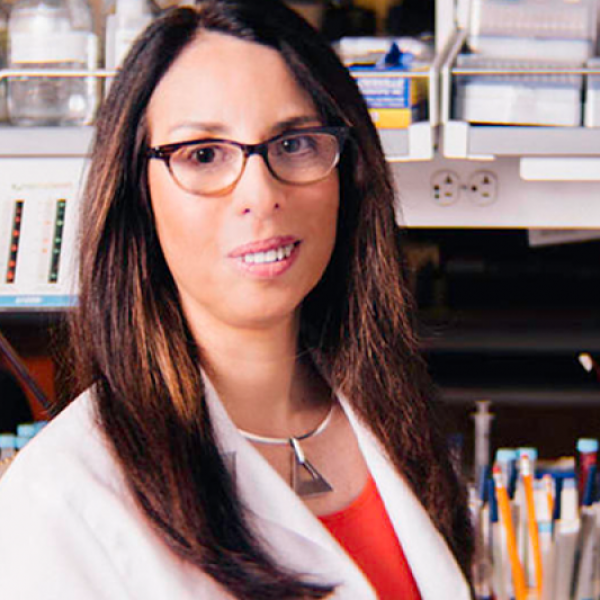Padmanee Sharma

Padmanee “Pam” Sharma was hooked on science after her first biology class in high school. This interest strengthened as an undergraduate at Boston University when she took her first immunology course and was fascinated by the concept of how the immune system can adapt to recognize and fight off a pathogen or tumor cell that comes its way. “I chose to pursue a career in research and medicine because it gives me a chance to help patients, sometimes simply by being there to explain things during the course of a difficult situation, and to develop research that can have an impact on the future of patient care,” she says.
Sharma completed her M.D and Ph.D at Pennsylvania State University and a medical oncology fellowship at Memorial Sloan-Kettering Cancer Center. During that time, she had the opportunity to apply her understanding of immunology to the clinical setting. Sharma is currently a physician-scientist in the Departments of Genitourinary Medical Oncology and Immunology at The University of Texas M. D. Anderson Cancer Center in Houston, Texas.
Her lab focuses on the development of immunotherapy strategies to treat cancer. One of these strategies involves studies of ipilimumab (anti-CTLA-4), which was approved by the FDA last year to treat metastatic melanoma. Sharma received an MRA Young Investigator Award in 2008 to support her work to understand how to improve ipilimumab by better understanding how different components of the immune system react to the agent and to apply this knowledge so that more melanoma patients respond favorably to the treatment. “I’ve been lucky enough to meet some of the patients who have had incredible responses and are now disease free and living much longer lives. It helps us in the field to realize the impact our research can have” she says. A rising star in cancer research, Sharma has also received prestigious awards from the Prostate Cancer Foundation and the Cancer Research Institute.
As a physician treating cancer patients and as a researcher, Sharma has a unique and powerful combination of talents that are critical to accelerating clinical research. Much of her research is done by leveraging data from clinical trials to obtain clues to the biological basis for the cancer’s behavior. Then, her team takes that information from the patients and develops mouse models to study different ideas and test new treatment approaches in pre-clinical studies. If successful, new treatments can be implemented in new clinical trials. She describes this research process as, “going from the bedside back to the bench and then back to the bedside.”
Echoing the focus of the MRA, Sharma believes significant innovations in cancer research requires a team effort of different investigators, institutions, and sectors working together, which comes from a passion for making an impact on patients. Such collaboration is necessary for the development of combination therapies, which is seen as the future of cancer medicine. “We need companies and academic centers to bring together all of the different reagents, because it’s not going to be a single agent that is going to allow us to beat this disease. It’s going to be multiple agents together, and we have to be able to combine them in order to cure melanoma.”








